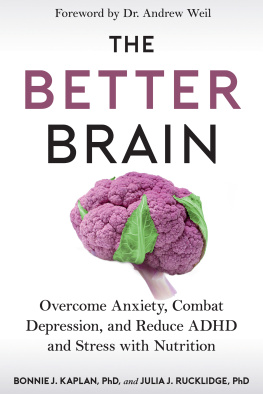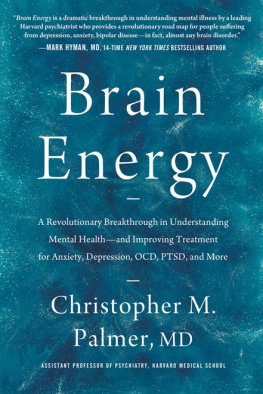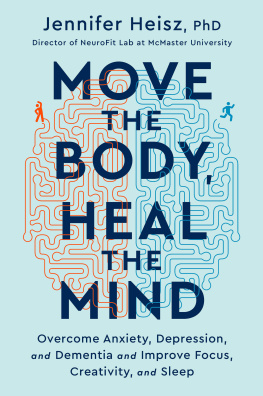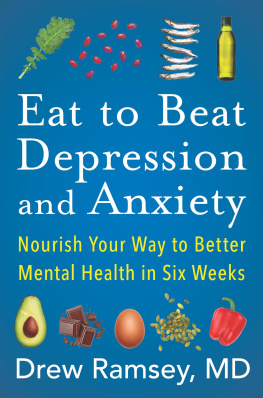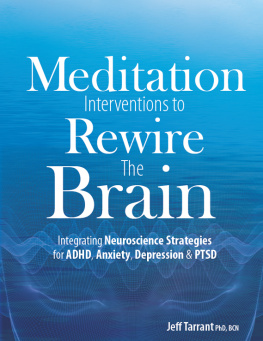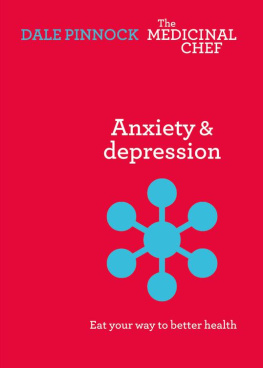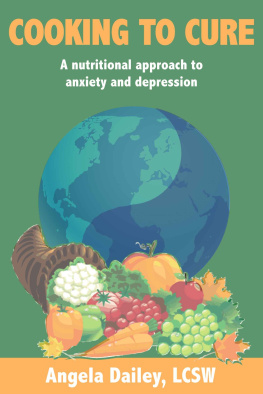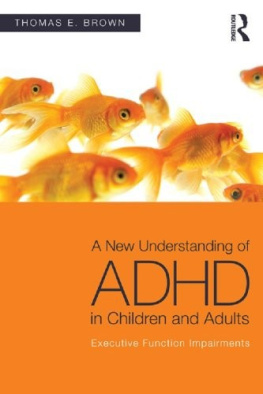Copyright 2021 by Bonnie J. Kaplan and Julia J. Rucklidge
Foreword copyright 2021 by Andrew Weil, MD
All rights reserved
For information about permission to reproduce selections from this book, write to or to Permissions, Houghton Mifflin Harcourt Publishing Company, 3 Park Avenue, 19th Floor, New York, New York 10016.
hmhbooks.com
Library of Congress Cataloging-in-Publication Data
Names: Kaplan, Bonnie J., author. | Rucklidge, Julia J., author.
Title: The better brain : overcome anxiety, combat depression, and reduce
ADHD and stress with nutrition / Bonnie J. Kaplan, PhD, Julia J. Rucklidge, PhD.
Description: Boston : Houghton Mifflin Harcourt, 2021. | Includes bibliographical references and index.
Identifiers: LCCN 2020039114 (print) | LCCN 2020039115 (ebook) | ISBN 9780358447108 (hardcover) | ISBN 9780358449263 | ISBN 9780358449447 | ISBN 9780358447085 (ebook)
Subjects: LCSH: Mental illnessNutritional aspects. | Mental illnessDiet therapy.
Classification: LCC RC455.4.N8 K37 2021 (print) | LCC RC455.4.N8 (ebook) | DDC 616.85/270654dc23
LC record available at https://lccn.loc.gov/2020039114
LC ebook record available at https://lccn.loc.gov/2020039115
Author photographs courtesy of the author (Kaplan) and Krystle Photography (Rucklidge)
Front cover photographs by Jiangdi/Shutterstock.com (cauliflower head) and Kompor/Shutterstock.com (cauliflower stem)
Cover design by Tai Blanche
v1.0321
This book presents, among other things, the research and ideas of its authors. It is not intended to be a substitute for consultation with a professional healthcare practitioner. Consult with your healthcare practitioner before starting any diet or other medical regimen. The publisher and the author disclaim responsibility for any adverse effects resulting directly or indirectly from information contained in this book. Some names and identifying details have been changed.
To all our research participants, who give us their time and trust, and to our graduate students and trainees, who will carry this work forward into the future.
Foreword
by Andrew Weil, MD
New York Times best-selling author of Spontaneous Happiness and director of the University of Arizona Center for Integrative Medicine
IN MY FOUR YEARS (196468) as a student at Harvard Medical School, the total instruction I received in nutrition was thirty minutes during a clinical rotationgrudgingly allowed for a hospital dietitian to talk about special diets available to patients. That deficiency in medical education persists, althoughfinallyit is recognized as a problem. Because most physicians are not nutritionally literate, they tend not to understand the influence of dietary choices on health status and disease risks or the power of dietary change as a primary therapeutic strategy.
These subjects are key components of Integrative Medicine training and practice for dealing with physical illnesses. When I write treatment plans for patients, almost always the first items are recommendations for dietary modification; often, I find these alone to be sufficient. Combined with other lifestyle changes, natural remedies, and mind/body therapies, they may obviate the need for medication or, if medication is necessary, make it possible to use lower doses of less potent agents.
In cases of autoimmunity, for example, adopting an anti-inflammatory diet and supplementing it with omega-3 fatty acids (from fish oil or other sources) and natural anti-inflammatory agents like turmeric and ginger may reduce symptoms significantly. Together with mindfulness and stress management training and, possibly, traditional Chinese medicine, improvement may be so great that need for immunosuppressive drugs is much less. For managing gastro-esophageal reflux disease, instead of resorting immediately to proton pump inhibitors with all of their serious short- and long-term adverse effects, integrative practitioners can take dietary histories and advise patients about eliminating common irritants (like coffee and decaffeinated coffee), changing the timing and size of meals, managing stress, and experimenting with safe natural products like chamomile, DGL (deglycyrrhizinated licorice), and d-limonene.
Given the relevance of nutrition to health and the safety and efficacy of dietary modification for the management of diverse ailments, why have these subjects so consistently been neglected in the training of physicians? The only explanation I come up with is that to the academic medical mind, nutrition looks more like home economics than real science. Whatever the reason, the consequences are detrimental, limiting understanding of the causes of disease and options for treatment and contributing to overuse of medications.
Further, deficiency of education in nutrition has skewed research priorities. In the past few years, a flood of much-publicized studiesmany of them poorly designed meta-analyseshave belittled the benefits and exaggerated the dangers of dietary supplements, particularly multinutrient products. Medical journals have given these reports prominence, leading to stories in the popular media suggesting that people taking vitamin and mineral supplements are not only wasting their money but are also increasing their risks of all-cause mortality. One can speculate about the motivations for this agenda, but its influence is clear: despite evidence to the contrary, many clinicians now advise patients not to use these supplements.
Neglect of nutrition and of dietary supplementation is a serious defect in medicine generally and in the field of mental health particularly. The biomedical paradigm that dominates that field explains all mental and
The field of integrative mental health is in its infancy, but given the inadequacy of the pharmaceutical approach, it is attracting growing numbers of mental health professionals. Nutrition is an important focus of the field, with due attention to dietary change as a primary treatment strategy along with appropriate use of micronutrient supplementation.
The authors of this book have been studying nutrition and brain health for years. Their research provides strong evidence for dietary adjustment and supplementation as safe and effective ways to optimize mental health and treat the most common mental and emotional disorders. Yet Bonnie Kaplan and Julia Rucklidge write, We both had been taught that nutrition and diet were of trivial significance for mental health, and that only drugs or psychotherapy were of any value as treatments. In these pages, they explain how they came to question that dogma and begin their groundbreaking studies. They also discuss the opposition they encountered to their recommendations for multinutrient rather than single-nutrient supplementation.
In recent years, other lines of research have added to our understanding of the relationship between what people eat and cognitive and emotional status. Two discoveries I consider especially noteworthy are the connection between inflammation and depression and the interactions of the gut microbiome with the brain, both of which are explained in this book.
The rationale for reliance on the most commonly prescribed antidepressant medications (selective serotonin reuptake inhibitors) is the assumption that depression results from deficiency of serotonin at neural junctions in the brain. If this were the whole story, one would expect drugs that increase serotonin at those junctions to be more effective than they are. In fact, the more we study SSRIs, the harder it is to distinguish their effects from those of placebos, except in the most severe forms of depression.
An alternative conceptthe cytokine hypothesis of depressionposits a correlation between the immune system and the brain: specifically, that upregulation of inflammatory cytokines is linked to depressed mood and the various symptoms that often accompany it, such as fatigue, decreased appetite, and social withdrawal. This suggests that moderating inflammation can help prevent and treat depression and benefit emotional well-being. One way to do that is to adopt an anti-inflammatory diet.

